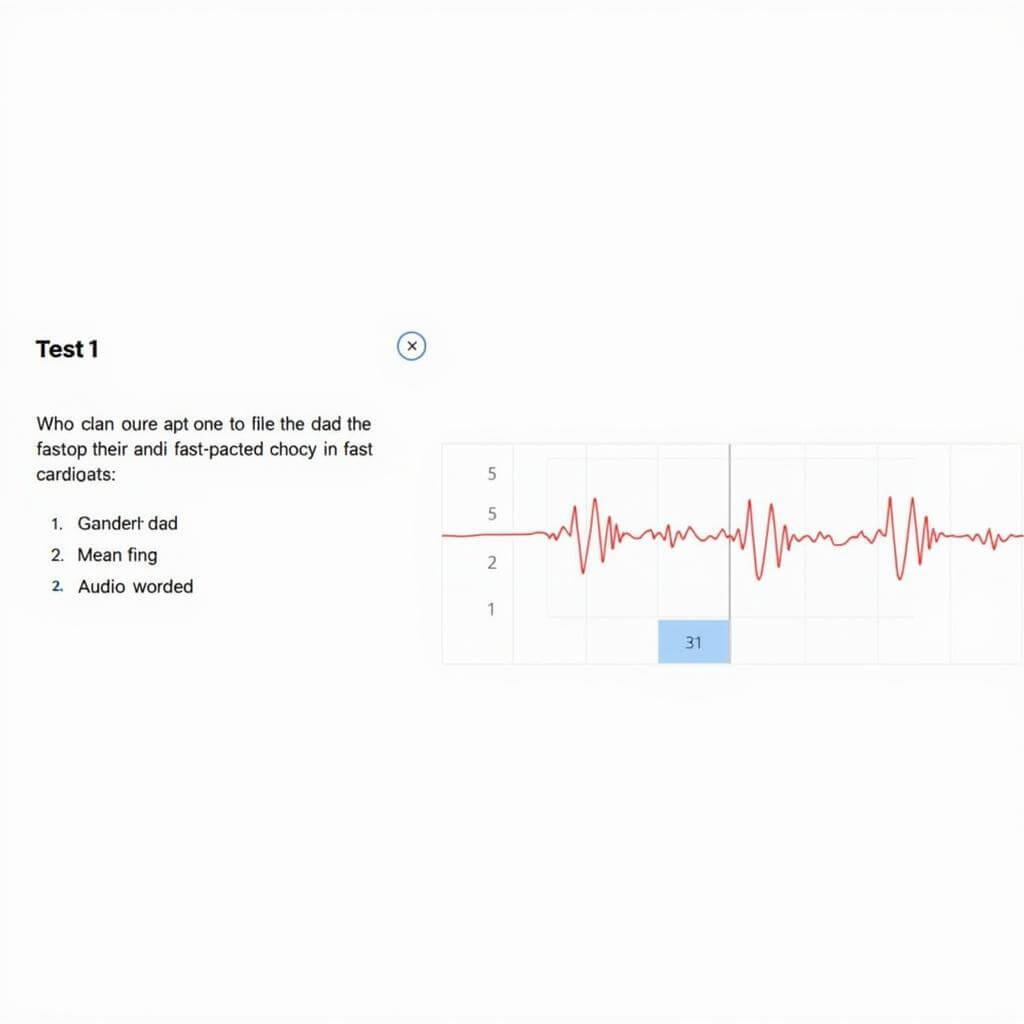The IELTS Listening test can be challenging, especially when faced with rapid-fire multiple choice questions. Handling fast-paced multiple choice sections requires a combination of specific skills and strategies. As an experienced IELTS instructor, I’ll share valuable insights to help you excel in this crucial aspect of the listening test.
Understanding Fast-Paced Multiple Choice Questions
Fast-paced multiple choice questions in IELTS Listening are designed to assess your ability to quickly process information and make accurate selections under time pressure. These questions often appear in sections 3 and 4 of the listening test, where the audio content is more complex and delivered at a faster pace.
Tackling fast-paced conversations is essential for success in this part of the test. Let’s explore some key characteristics of these questions:
- Rapid delivery of information
- Multiple options to choose from
- Limited time to read and process
- Distractors that sound similar to correct answers
- Need for simultaneous listening and reading
Understanding these features will help you prepare more effectively for the challenges ahead.
Strategies for Success
1. Preview the Questions and Options
Before the audio begins, use the given time to quickly read through the questions and answer choices. This will help you:
- Identify key words and themes
- Anticipate the information you need to listen for
- Eliminate obviously incorrect options
Focusing on specific keywords can significantly improve your performance in fast-paced sections.
2. Develop Active Listening Skills
Active listening is crucial when dealing with rapid-fire information. To improve your active listening:
- Practice concentrating on the speaker’s main points
- Learn to filter out unnecessary details
- Train yourself to anticipate what might come next based on context
Handling fast-paced audio effectively requires consistent practice and refinement of these skills.
3. Use Elimination Technique
When you’re unsure of the correct answer, use the process of elimination:
- Cross out options that are clearly wrong
- Focus on the remaining choices
- Make an educated guess if necessary
This strategy can significantly increase your chances of selecting the correct answer, even when time is limited.
4. Improve Your Note-Taking Skills
Efficient note-taking is essential for managing fast-paced multiple choice questions:
- Use abbreviations and symbols
- Focus on key information rather than trying to write everything
- Develop a personal shorthand system
5. Practice Time Management
Managing your time effectively is crucial in fast-paced sections:
- Allocate a specific amount of time for each question
- Move on if you’re stuck on a particular question
- Leave time to transfer your answers to the answer sheet
Strategies for listening under pressure can help you maintain composure and efficiency during the test.
Common Pitfalls to Avoid
- Getting fixated on a single question and missing subsequent information
- Choosing an answer based on familiar words without fully understanding the context
- Failing to read all options before selecting an answer
- Letting anxiety affect your concentration and decision-making
- Not managing time effectively and rushing through the final questions
Practical Examples from IELTS Tests
Let’s look at some examples of fast-paced multiple choice questions you might encounter:
-
You hear: “The study concluded that 73% of participants showed improved cognitive function after regular exercise.”
Options: A) 63% B) 73% C) 83% -
You hear: “The new policy will be implemented on July 1st, 2023, following a six-month trial period.”
Options: A) June 1st, 2023 B) July 1st, 2023 C) January 1st, 2024 -
You hear: “Dr. Smith’s research focuses on the impact of climate change on marine ecosystems, particularly coral reefs.”
Options: A) Terrestrial ecosystems B) Freshwater ecosystems C) Marine ecosystems -
You hear: “The company’s annual revenue increased by 12.5% compared to the previous fiscal year.”
Options: A) 11.5% B) 12.5% C) 13.5% -
You hear: “The survey revealed that 42% of respondents preferred online shopping over in-store purchases.”
Options: A) Online shopping B) In-store purchases C) Both equally
How to answer IELTS listening questions accurately under pressure provides additional insights into tackling these types of questions effectively.

Effective Practice Techniques
To improve your performance in fast-paced multiple choice sections:
- Use official IELTS practice materials and past papers
- Gradually increase the speed of practice audio
- Time yourself during practice sessions
- Analyze your mistakes and identify patterns
- Practice with background noise to simulate test conditions
- Work on improving your overall English listening skills through podcasts, news broadcasts, and academic lectures
Remember, consistent practice is key to mastering this challenging aspect of the IELTS Listening test.
Conclusion
Handling fast-paced multiple choice questions in IELTS Listening requires a combination of skills, strategies, and practice. By understanding the nature of these questions, implementing effective techniques, and avoiding common pitfalls, you can significantly improve your performance in this crucial part of the test. Remember to stay calm, manage your time wisely, and trust in your preparation. With dedicated practice and the right approach, you can confidently tackle even the most challenging fast-paced multiple choice questions in your IELTS Listening test.
We encourage you to share your experiences and questions in the comments section below. Your insights could help fellow test-takers, and we’re always here to provide additional guidance. Keep practicing, stay positive, and best of luck on your IELTS journey!